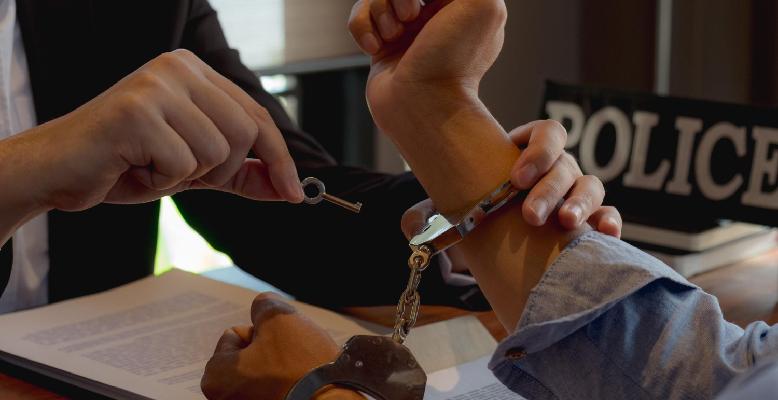Arrests can be a confusing and frightening experience, especially when you’re unsure about the legalities involved. Whether it’s a warrant or no warrant at all, understanding these differences is crucial for both individuals and their families.
The terms ‘arrest with a warrant‘ and ‘warrantless arrest’ often come up in discussions surrounding law enforcement practices, but do you really know what they mean? Let’s dive into this complex topic packed with important information that could affect you or someone you care about. Knowing your rights during an arrest not only helps you navigate the situation better; it also empowers you to make informed decisions should the need arise. Stick around as we break down everything from warrants to bail bonds services available right here in McKinney TX!
What is an Arrest Warrant?
An arrest warrant is a legal document issued by a judge or magistrate. It authorizes law enforcement to apprehend an individual suspected of committing a crime.
To obtain this warrant, law enforcement must demonstrate probable cause. This means presenting sufficient evidence that supports the belief that the person has engaged in criminal activity. Arrest warrants are specific and detailed. They include the name of the suspect, details about the alleged crime, and any pertinent facts surrounding the case.
These documents serve as protection for individuals against unlawful arrests. Without a valid warrant, police may face legal repercussions for violating an individual’s rights. Warrants ensure accountability in law enforcement actions while maintaining public safety standards. Understanding how they function can help demystify some aspects of our justice system.

The Process of Obtaining an Arrest Warrant
Obtaining an arrest warrant is a structured legal process. It typically begins when law enforcement gathers enough evidence to justify the need for an arrest. This could include witness statements, physical evidence, or surveillance footage. Next, the officer prepares a formal request and submits it to a judge or magistrate. The application must clearly outline probable cause, demonstrating that the individual committed a crime.
The judge reviews this information carefully. If they find sufficient grounds, they will issue the warrant, often detailing specific charges against the suspect. Once granted, police can execute the warrant at any time. They usually aim to apprehend the person in question as swiftly as possible while respecting their rights during the process. What follows can vary based on jurisdiction and circumstances but remains rooted in adherence to due process.
Advantages and Disadvantages of Making an Arrest With a Warrant
Making an arrest with a warrant provides law enforcement with legal backing. Officers can rely on the support of the judicial system, knowing they are acting within established legal parameters. A key advantage is that warrants require probable cause. This means there’s evidence suggesting that a crime has occurred, which helps prevent unnecessary arrests. It also adds a layer of accountability for the officers involved.
However, obtaining a warrant takes time and resources. Delays can allow suspects to evade capture or destroy evidence. Sometimes speed is essential in high-risk situations where waiting isn’t an option.
Moreover, while warrants promote lawful conduct, they might limit officers’ discretion during urgent scenarios where immediate action could be necessary to protect public safety. Balancing thorough procedures against swift response remains a challenge for law enforcement agencies.
What is a Warrantless Arrest?
A warrantless arrest occurs when law enforcement detains an individual without first obtaining a formal arrest warrant. This type of arrest is permitted under specific circumstances, reflecting the need for immediate action by police.
Typically, officers must have probable cause to believe that a crime has been committed or is in progress. In such situations, waiting for a warrant could jeopardize public safety or allow evidence to be destroyed. Warrantless arrests can happen during various scenarios, like witnessing a crime firsthand or responding to emergencies where quick intervention is critical.
These actions emphasize the balance between maintaining order and protecting citizens’ rights. However, they also raise questions about legality and civil liberties that are essential to understand for anyone potentially facing an encounter with law enforcement.

Circumstances Where a Warrantless Arrest Can Be Made
Warrantless arrests occur under specific situations where immediate action is necessary. Law enforcement officers can make these arrests if they witness a crime happening in real time. This includes felonies and certain misdemeanors. Another scenario involves imminent threats to public safety or risk of evidence destruction. If an officer believes that waiting for a warrant could hinder their investigation, they may act swiftly.
Additionally, warrantless arrests can be made during the execution of lawful searches. For example, if police are legally searching premises and encounter someone committing an offense, they have the right to arrest them on the spot.
Probable cause also plays a crucial role. Officers must have reasonable grounds to believe that an individual has committed or is about to commit a crime. The urgency of these situations often dictates the need for immediate intervention without prior authorization from a judge.
Pros and Cons of Making an Arrest Without a Warrant
Making an arrest without a warrant has its advantages. Officers can act quickly in urgent situations, preventing potential harm or escape. This immediate response can be crucial during crimes in progress.
However, warrantless arrests also pose risks. The legality of such actions is often scrutinized. If officers overstep bounds, it could lead to challenges in court and the possibility of evidence being deemed inadmissible. Additionally, individuals arrested without a warrant may feel their rights are violated. This perception can erode public trust in law enforcement and lead to community unrest.
It’s important for police to balance urgency with protocol. Proper training on when and how to make these arrests helps ensure justice while protecting citizens’ rights. Each situation is unique, requiring careful judgment from law enforcement professionals at every turn.
Understanding Your Rights During an Arrest
Understanding your rights during an arrest is crucial. Every individual has the right to remain silent, meaning you can choose not to answer questions posed by law enforcement. You also have the right to ask for an attorney. If you cannot afford one, a public defender will be provided for you. It’s important to assert this right clearly and calmly.
Additionally, you are protected from unreasonable searches and seizures under the Fourth Amendment. Officers need probable cause or a warrant in most cases before searching your person or property. If you’re being arrested without a warrant, it’s essential to know that officers must inform you of the reason for your arrest unless doing so would compromise their investigation.
Remember, staying calm and cooperating—without waiving your rights—can help navigate such stressful situations more smoothly.

Conclusion
Arrests can happen with or without a warrant, and understanding the differences is crucial for both law enforcement and citizens. Arrest warrants provide a legal basis for detaining someone, ensuring that due process is followed. The process of obtaining a warrant involves presenting evidence to a judge who determines its validity.
Making an arrest with a warrant has its advantages, such as minimizing legal risks and providing clarity in the eyes of the law. However, it may also lead to delays if immediate action is needed.
On the other hand, warrantless arrests are allowed under specific circumstances where immediate action is necessary—like witnessing a crime in progress or when there’s a reasonable belief that someone poses an imminent threat. While these actions can be justified in urgent situations, they carry potential risks regarding individuals’ rights.
Understanding your rights during any kind of arrest helps ensure fair treatment and protection against unlawful detainment. Whether you find yourself needing affordable bail bond services in McKinney TX or reaching out to Bring ’em Home 24/7 Bail Bonds for assistance following an arrest, knowing what to expect makes navigating this complex landscape easier. Educating yourself about warrants empowers you as well as instills confidence in handling encounters with law enforcement effectively.


